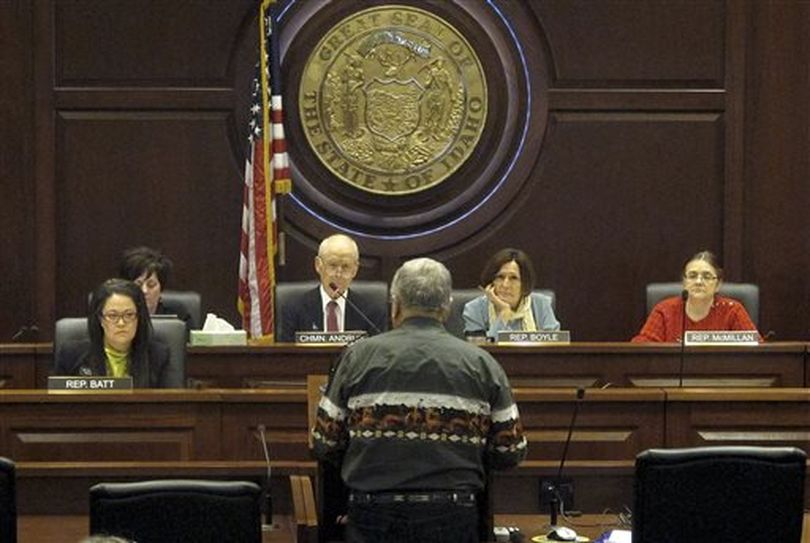Testimony: ‘They know how to spin a story,’ ‘What do they have to hide?’

Among those testifying on SB 1337, the agriculture security or so-called “ag-gag” bill, this afternoon:
Elham Marder, a corporate attorney representing herself, said, “Businesses should be focused on training and prevention, not passing legislation to keep consumers in the dark.”
Brent Olmstead, executive director of Milk Producers of Idaho, said his members support SB 1337. “You’ve got a room that’s half full of dairymen that came down here,” he told lawmakers. “They came down here for a very simple reason: They’re afraid. … The timber products industry, the mining industry, have been decimated over the years, and part of that reason is activities from well-organized activist organizations. … They know how to take a story, they know how to spin a story, and they use that story against dairymen. … There is an economic attack here.” He said, “The insinuation from these ads ... that these actions are common treatment on a dairy is ludicrous – it is not.”
Sara Baugh said, “This bill is narrowly crafted to benefit just agricultural producers, and erodes the public’s trust in industry, including Idaho’s farmers and ranchers, and causes consumers to think, what do they have to hide?” She said, “I’m in favor of protecting consumers’ rights to know how their food is produced.”
Jim Lowe of Food Producers of Idaho, decried “this business of sneaking footage that can be edited and used in a media campaign.” He said, “Idaho agriculture has nothing to hide. ... This bill is not about hiding anything. This bill is about honesty, it’s about truth, it’s about due process, and it’s about the right of an individual to control their private property.”
Scott Beckstead, a Humane Society of the United States official who said he was born and raised on a Twin Falls farm, said, “I would submit that this bill poses a greater threat to Idaho agriculture than all the video camera-wielding vegans in the world, because what this bill says is that Idaho agriculture does have something to hide. And when people are trying to make informed choices about their diet, about their food, about where their food comes from, they’re going to look at Idaho and say, ‘Idaho has something to hide.’”
